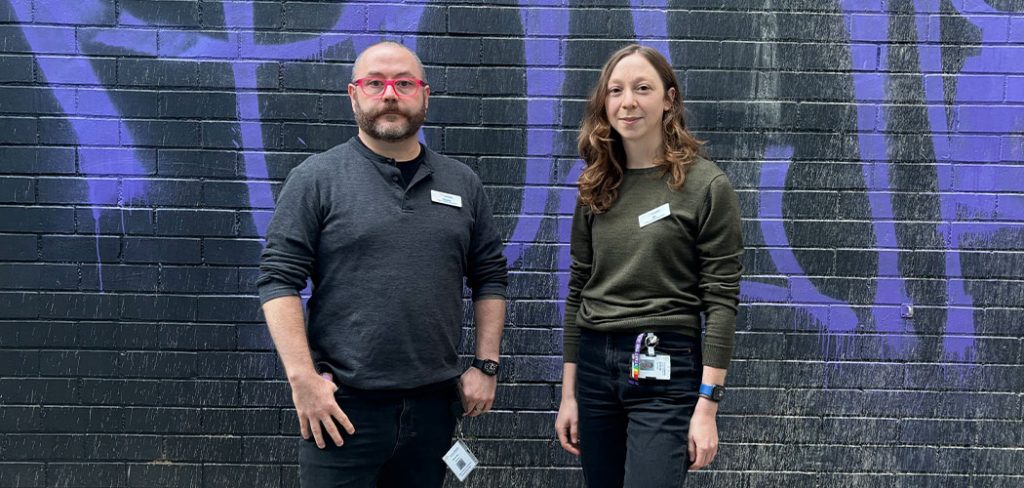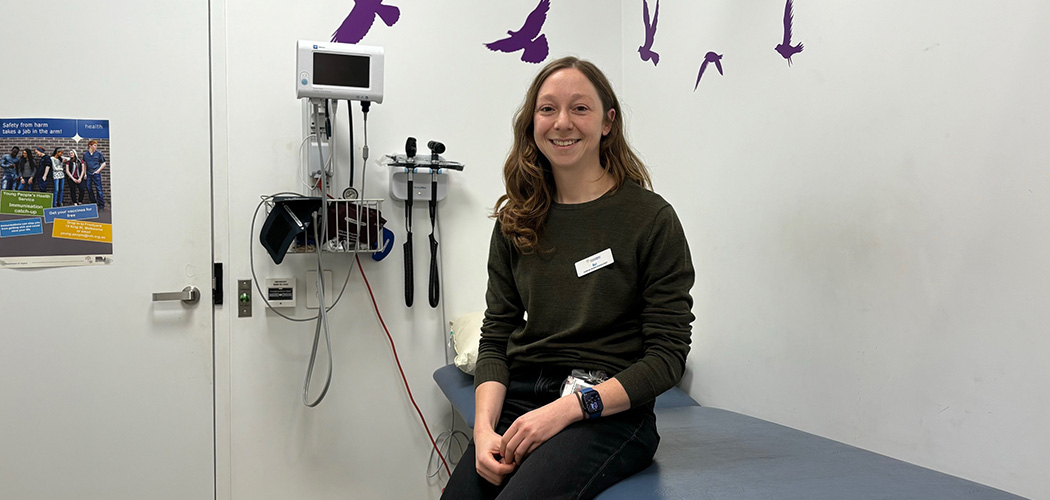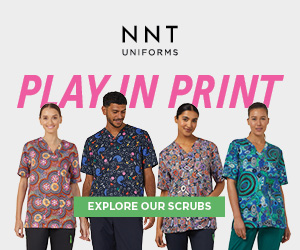Amid the hustle and bustle of Melbourne’s King Street, a small team of dedicated nurses provide vital healthcare to young people aged 12 to 24 experiencing homelessness.
“What I love most is that you feel like you are making a difference in young people’s lives,” says youth health nurse practitioner Dot Henning.
“These are young people who perhaps don’t access other health services at all. It’s a real privilege to be involved in their lives and to be able to support them.”
Launched in 1991, the Young People’s Health Service is a free and confidential nurse-led clinic co-located at Frontyard Youth Services, a specialist statewide youth homelessness access point run by Melbourne City Mission that offers a range of services including emergency housing and social and emotional support.
Clinical Nurse Consultant Belinda Tominc, who was recently endorsed as a nurse practitioner, joined the nurse-led clinic in 2019 as an immunisation outreach nurse.
As you would expect, Belinda tells the ANMJ, most referrals come through Frontyard after young people walk in off the streets.
“Young people come to Frontyard initially because they’ve had to leave home and while they’re waiting for their housing appointments or other services they usually get asked if they want to see a nurse,” explains Belinda.
“Or, if we’re upstairs in the waiting space, we’ll just approach people opportunistically and say ‘hey, while you’re waiting, do you want to have a health check?’.”
The core team of three nurses, who are employed by The Royal Children’s Hospital, provide initial health and psychosocial assessments to understand the young person’s state of health and general situation.
Common health issues include Vitamin D deficiency and alcohol and other drug use. The clinic does a lot of work in sexual health, including providing access to birth control, and also gets young people up to date with missed vaccinations.
For Clinical Nurse Consultant Charlie Bowes, working with youth at risk of or experiencing homelessness brings a sense of daily satisfaction typically not found in other health settings.

While some of his colleagues consider the prospect of working in this space “scary” and “intimidating” he instead finds it unique and rewarding.
“Unconditional positive regard is something that’s really important to us in this service, and that’s providing really thorough, opportunistic and open healthcare, but also a positive health experience for every young person we see,” says Charlie.
“That approach means that we are going to build better rapport, we’re going to have better relationships with these young people and give them a positive health experience, which they often haven’t had before. And it means they’ll come back and see us again.”
Another important philosophy shared by the clinic’s nurses is the importance of remaining non-judgmental, adds Dot.
“We certainly see some young people who have been pretty harshly judged in the community, or even at other health services they might have visited,” she says.
While some cases prove more challenging than others, Dot says the nursing team has time on their side to forge ongoing relationships that often stretch over weeks and months.
“Some of the young people we do see don’t always want to come and see us. Sometimes, it’s just sowing the seed and remembering to go slow. They do come back,” Dot says.
“We have the time to see these young people and I know that other health services don’t always have that. If you’re visiting a GP, you’ve got a certain amount of time and you’re out.
“One of the things that comes up when you give them time and make that engagement is that sometimes they’ll say, ‘No one’s ever asked me that question before’. That’s a profound thing to hear back.”
Homelessness Week 2025 will be held from August 4 to 9. The theme for this year’s awareness event, which advocates for greater community support and government commitment to end homelessness, is “Homeless Action Now”.
In 2023-24, 11,301 young Victorians aged 15-24 presented alone (without a parent or guardian) to specialist homelessness services.
According to Charlie, earlier intervention should become a national priority in the effort to tackle homelessness.
“Prevention is something that is missed a lot of the time,” he suggests.
“A lot of the work we do is reactive, but we know the risk factors that are involved with people that experience homelessness and marginalisation, and we know that there are opportunities earlier in life to intervene and stop these things from happening.”
Belinda wholeheartedly agrees.
“Youth homelessness is a big issue in cities and it’s something that I think isn’t as obvious to people who are just going about their everyday lives. Being aware of the issue is a really important first step for all health professionals as there’s a lot we can do.”
Homelessness Week 2025 runs from August 4 to 9








